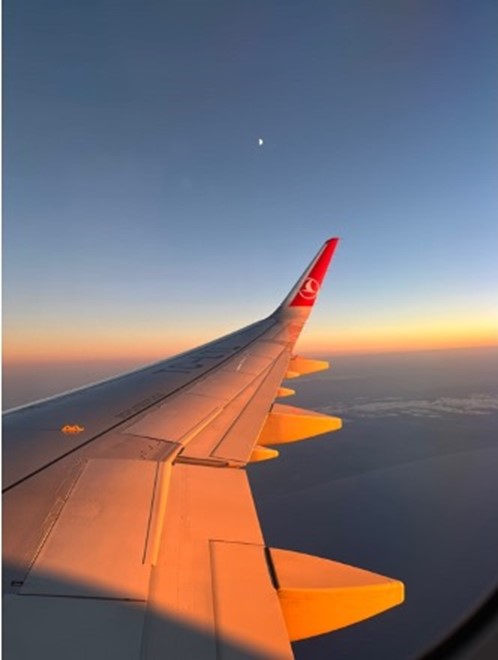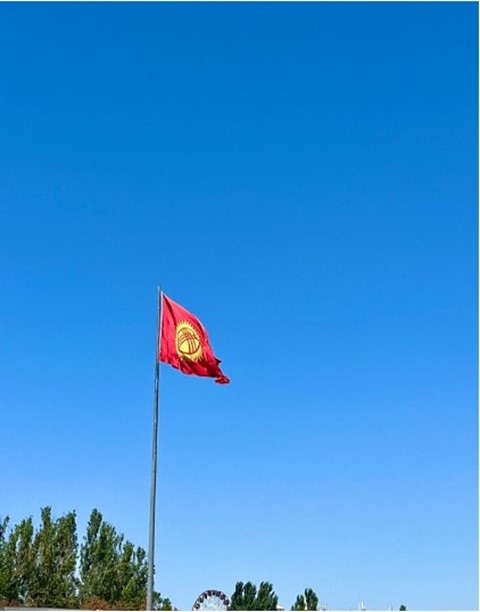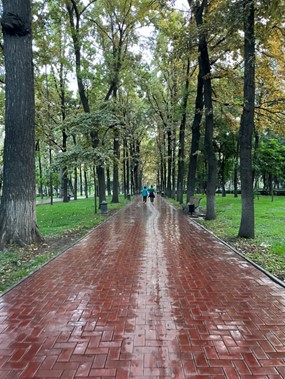By Natasha Netzorg
During the long moments where the melatonin can’t overcome the uncomfortable seats and the crying babies, the mind wanders to the possibilities, opportunities, and challenges that are to come. Ten hours on a plane is a long time to overthink what you have not yet experienced—which is exactly what I did. Racking up well over 25 hours of travel, I finally arrived two days later in Bishkek, Kyrgyzstan at 1:25am, where I stumbled off my third flight toward passport control. With Russian and Kyrgyz surrounding me, suddenly my world shifted into what was only a tiny sliver of a much larger one.
As a Gilman Scholar I have a responsibility to share experiences like mine. As a student of Russian, East European, and Eurasian Studies, I have a duty. Russia, for many reasons, has held a hegemony in the Russian area studies for a vast majority of students that begin pursuing the study of the Russian language. However, the reach of the language is extensive and for those who follow it takes them into areas with deep, rich cultures and histories, that include Russia, the Soviet Union, and the Russian Empire, but also maintain abundant culture outside of Russian influence. Kyrgyzstan is one such place.
Just over two days after my arrival in the country, I was picked up by my host family and brought to my home for the next four months where I would only speak Russian. Whether my Russian was sufficient after a summer-long break, I was thrown in and up until coming “home” I had only used my Russian to order a pot of tea and a salad from a café. Before I knew it, I was in Russian classes three hours a day and ending each evening around a table trying to comprehend Russian during the late dinners. No matter what I needed, I had to figure it out in a foreign language. Often, I stumbled over my words, messed up my grammar, and constantly felt like a magnifying glass was over me. From waiters automatically trying to practice English with me to walking down the street past a stopped bus only to look and see every face in the window looking back at me, it was apparent I was the new kid in Bishkek. I had to get comfortable with vastly different cultures quickly—that meant knowing dinner was anywhere from 7:00 to 10pm. It meant usually I’d get my class schedule half an hour before classes started at the beginning of the week, and it was always changing. That meant respecting the things I didn’t understand, the things that frustrated me, the things I found beautiful, and everything in between. And I had to do it all while not ever understanding the full picture.
But it’s only been about two weeks, and I’m here for another fourteen. Am I going to have amazing experiences here? Yup. Will it be hard? You bet. But that’s the point. Whenever I did the hard stuff, I gained so much more. Russian is like that. It’s hard. It takes time. It’s also no exception to my experience that I have gained some of the best experiences, knowledge, and support group because I study Russian. And there are times you want to quit; fly to Kyrgyzstan instead. You’ll see a big, green city nestled near the mountains, drink fruity teas on café porches or tea houses laden with tapestries and pillows, enjoy foods from Kyrgyz, Uyghur, Uzbek, and many more cultures, walk down lush, shaded parks and discover the history of Kyrgyzstan through monuments, homes, and its wonderful people. And sure, there’s going to be a lot of eyes on you, but that’s okay, it’s far past time our eyes should be cast on Kyrgyzstan and all of Central Asia.
Natasha Netzorg is a senior majoring in Russian, East European, and Eurasian Studies



